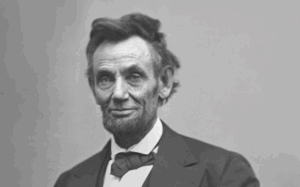Abraham Lincoln, the 16th President of the United States, remains an iconic figure in American history. His leadership during the tumultuous Civil War, his unwavering commitment to preserving the Union, and his pivotal role in the abolition of slavery have cemented his place in the national pantheon. While most recognize him by his given name, “Abraham Lincoln,” or the widely known moniker “Honest Abe,” a closer examination reveals a fascinating array of nicknames bestowed upon him throughout his life and presidency. These appellations, ranging from the earnest and respectful to the more folksy and descriptive, offer a unique lens through which to understand the multifaceted character and public perception of this complex and consequential leader. This article delves into the rich tapestry of nicknames associated with Abraham Lincoln, exploring their origins, the historical context in which they arose, and the insights they provide into the man behind the monument. By examining these various titles, we gain a deeper appreciation for the enduring legacy of a president who navigated a nation through its darkest hour.

nicknames for abe lincoln
2. “Honest Abe”: The Foundation of a Legacy
Perhaps the most enduring and universally recognized nickname for Abraham Lincoln is “Honest Abe.” This straightforward epithet speaks volumes about the reputation for integrity and trustworthiness that Lincoln cultivated throughout his life. Its origins can be traced back to his early days as a storekeeper and lawyer in Illinois. Stories abound of his unwavering commitment to fairness and truthfulness in even the smallest transactions. Whether it was walking miles to return a few cents of overpayment or refusing to take on cases he believed were unjust, Lincoln’s actions consistently reinforced his image as a man of impeccable honesty.
The significance of this reputation in the political landscape of the 19th century cannot be overstated. An era often marked by political maneuvering and accusations of corruption, Lincoln’s perceived honesty set him apart. It fostered a sense of trust among the electorate, allowing him to connect with ordinary citizens on a fundamental level. In a time when personal character played a crucial role in shaping public opinion, “Honest Abe” became a powerful asset, projecting an image of sincerity and reliability that resonated deeply with a nation grappling with profound social and political divisions. This nickname was not merely a label; it was a testament to a deeply ingrained aspect of his personality that significantly shaped his political career and continues to define his legacy.
3. “The Rail-Splitter”: Symbol of Humble Beginnings and American Grit
Another prominent nickname that played a significant role in shaping Lincoln’s public image was “The Rail-Splitter.” This evocative title directly referenced his humble origins and the hard physical labor he engaged in during his youth in the frontier territories of Kentucky and Indiana. During the 1860 presidential campaign, the “rail-splitter” image was strategically employed by the Republican Party to portray Lincoln as a self-made man, deeply connected to the common people and embodying the values of hard work, perseverance, and resilience that were central to the American self-image.
The imagery of splitting rails – a strenuous and essential task in frontier life – resonated powerfully with a nation that still held a strong connection to its agrarian roots. It served as a potent symbol of Lincoln’s down-to-earth nature and his understanding of the struggles faced by ordinary Americans. This nickname effectively contrasted him with his more privileged political opponents and reinforced the narrative of the “log cabin to the White House” ascent, a quintessential element of the American Dream. “The Rail-Splitter” not only humanized Lincoln but also imbued him with an aura of ruggedness and determination, qualities that would prove particularly important as the nation teetered on the brink of civil war. The enduring appeal of this nickname lies in its ability to encapsulate the story of Lincoln’s rise from humble beginnings to national leadership, embodying the spirit of American grit and opportunity.
4. “Father Abraham”: A Nation’s Patriarch During Crisis
As the nation plunged into the devastating Civil War, a new, more paternal nickname began to emerge: “Father Abraham.” This title reflected the immense responsibility Lincoln carried as the leader of a fractured nation and the deep emotional toll the conflict took on him. It spoke to his role as a figure of stability and guidance during a time of unprecedented crisis and loss. “Father Abraham” was not just a term of respect; it conveyed a sense of familial connection, with citizens looking to him for leadership, reassurance, and ultimately, the preservation of the Union.
The weight of the war and the immense suffering it caused were palpable, and Lincoln’s demeanor often reflected this burden. Yet, he also displayed a remarkable capacity for empathy and a profound sense of responsibility for the well-being of the nation and its people, both North and South. His speeches and public addresses often carried a tone of paternal concern, seeking to heal divisions and remind the nation of its shared values. “Father Abraham” captured this aspect of his leadership, acknowledging his role as the head of the national family during its most trying period. This affectionate title underscores the deep emotional connection that many felt towards Lincoln, viewing him not just as a president but as a steadfast and guiding father figure during a time of immense national grief and uncertainty.
5. “The Great Emancipator”: Defining a Presidency and a Nation’s Values
Perhaps the most historically significant and enduring of Lincoln’s nicknames is “The Great Emancipator.” This title unequivocally recognizes his pivotal role in the abolition of slavery in the United States through the Emancipation Proclamation of 1863. This landmark decree, issued during the Civil War, declared enslaved people in Confederate-held territory to be free, fundamentally altering the course of the war and the moral trajectory of the nation. “The Great Emancipator” is more than just a descriptive title; it is a testament to Lincoln’s moral courage and his willingness to take decisive action on one of the most pressing issues of his time.
The Emancipation Proclamation was a watershed moment in American history, transforming the Civil War into a fight for human freedom and laying the groundwork for the eventual abolition of slavery nationwide with the passage of the 13th Amendment. The nickname “The Great Emancipator” reflects the profound impact of this act, solidifying Lincoln’s legacy as a champion of human rights and a figure who played a crucial role in advancing the cause of equality in the United States. This title resonates deeply because it speaks to a fundamental shift in American values and the realization of the nation’s founding ideals. It underscores Lincoln’s enduring significance not just as a wartime leader but as a transformative figure who helped to shape a more just and equitable society.
6. Less Common, Yet Equally Revealing Nicknames
Beyond the widely recognized monikers, Abraham Lincoln was also known by several less common nicknames that offer further glimpses into his personality and the perceptions of those around him.
-
“Long Shanks”: This was a straightforwardly descriptive nickname referring to Lincoln’s tall and lanky physical stature. While not carrying deep symbolic weight, it highlights a readily apparent physical characteristic that contributed to his distinctive appearance.
-
“Abe the Giant Killer”: This more metaphorical nickname emerged during his political career, particularly during debates and campaigns where he effectively challenged and often outmaneuvered his opponents, who were sometimes more established or politically powerful. It spoke to his sharp intellect and his ability to rise to challenges, even when facing seemingly insurmountable odds.
-
Various other informal and regional appellations likely existed, used by friends, family, and constituents in different contexts. These might have reflected local anecdotes, personal interactions, or specific events in his life and career. While these nicknames may not have achieved widespread recognition, they contributed to the rich tapestry of his public and private persona.
7. The Power of Nicknames in Shaping Historical Memory
Nicknames, seemingly simple labels, possess a remarkable power in shaping historical memory and public perception. In the case of Abraham Lincoln, his various nicknames have played a significant role in how he is remembered and understood by subsequent generations. “Honest Abe” establishes a foundation of integrity, “The Rail-Splitter” connects him to the common person, “Father Abraham” evokes his leadership during crisis, and “The Great Emancipator” highlights his transformative role in ending slavery.
These nicknames serve as concise and memorable summaries of key aspects of his character, his background, and his accomplishments. They act as cultural shorthand, allowing people to quickly grasp essential elements of his story and his significance. The evolution of Lincoln’s nicknames also reflects the changing perceptions of him over time, from the folksy “Rail-Splitter” during his campaign to the revered “Father Abraham” and “Great Emancipator” during and after the Civil War. The longevity and widespread adoption of certain nicknames, like “Honest Abe,” speak to the enduring power of these labels in shaping and solidifying historical narratives. Conversely, the fading of other, less prominent nicknames suggests which aspects of his persona have resonated most strongly with the American consciousness.
Presidential Nicknames and Their Origins
Lincoln’s rise to national prominence brought with it a surge in nicknaming, as the public and press sought to define the character of this relatively unknown Illinois lawyer. As the Civil War president, Lincoln earned nicknames reflecting both adoration and criticism.
Notable presidential nicknames:
| Nickname | Meaning/Origin | Context |
|---|---|---|
| Honest Abe | Symbol of his incorruptible honesty | Used in debates and media |
| The Great Emancipator | For issuing the Emancipation Proclamation | Post-1863, celebrated in newspapers |
| Father Abraham | Reference to his paternal leadership during the war | Popular among Union soldiers |
| The Rail-Splitter | Campaign image connecting him to the common man | 1860 presidential campaign |
8. Conclusion: A Tapestry of Titles Reflecting a Complex Legacy
Abraham Lincoln was more than just a president; he was a figure who embodied the aspirations and contradictions of a nation grappling with its identity. His diverse array of nicknames – from the earnest “Honest Abe” and the relatable “Rail-Splitter” to the paternal “Father Abraham” and the transformative “Great Emancipator” – collectively paint a rich and multifaceted portrait of this iconic leader. These titles offer invaluable insights into his character, his political acumen, and the profound impact he had on the course of American history. They remind us that historical figures are not monolithic entities but complex individuals whose legacies are shaped and understood through the stories we tell and the names we bestow upon them.
9. Frequently Asked Questions (FAQs)
Q: What is Abraham Lincoln most famously known as? A: Abraham Lincoln is most famously known as “Honest Abe.”
Q: What did the nickname “The Rail-Splitter” signify? A: “The Rail-Splitter” symbolized Lincoln’s humble, working-class origins and his connection to the common people and the values of hard work.
Q: Why was Lincoln called “Father Abraham”? A: He was called “Father Abraham” during the Civil War to reflect his role as a leader and guide for the nation during a time of immense crisis and loss, conveying a sense of paternal responsibility and care.
Q: What is the significance of the nickname “The Great Emancipator”? A: “The Great Emancipator” highlights Lincoln’s pivotal role in the abolition of slavery through the Emancipation Proclamation.
Q: Did Lincoln like his nicknames? A: While there is no definitive record of Lincoln’s feelings about all his nicknames, he generally embraced the image of “Honest Abe” and the symbolism of “The Rail-Splitter,” as they aligned with his efforts to connect with the electorate.






